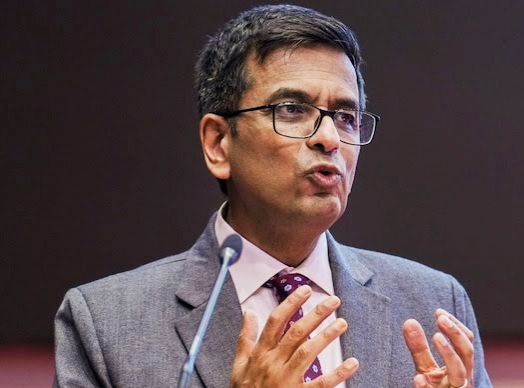Rehan Khan
Chief Justice of India, Dr. D.Y. Chandrachud in a recent address defended the collegium system for appointing judges to the Supreme Court and High Courts, addressing its structure and benefits during an event organized by Marathi daily Loksatta. In his opening remarks at this lecture series, Justice Chandrachud acknowledged that while every institution could see improvement, this does not signify inherent defects in the collegium system.
Justice Chandrachud explained that the collegium operates through a federal consultative process that involves both central and state governments, along with the judiciary. “It operates through a consultative process where, despite occasional disagreements, a consensus is generally achieved. This reflects the robustness of our federal system,” he stated. He stressed that understanding the collegium system requires a nuanced and mature approach, noting that occasional disagreements are a natural part of the process. “Occasional lack of consensus is part of the institutional process, which showcases the strength rather than the weakness of our system,” he remarked, underscoring that constructive differences only add to the system’s durability.
Addressing critiques of the system, Justice Chandrachud underlined that discussions over judicial appointments are approached with considerable thoughtfulness. “We must recognize that criticism is easy, but it is crucial to acknowledge that the possibility for improvement does not equate to inherent flaws,” he added, reiterating the difference between constructive suggestions and allegations of dysfunction.
Touching upon the demanding workload faced by the judiciary, the Chief Justice highlighted that judges carry an increasing burden as they rise through the ranks. He added, “Judges remain committed to their duties, even during vacations. They are not merely passing time but are deeply engaged in their responsibilities.”
In his concluding remarks, Justice Chandrachud also addressed the influence of social media on the judiciary, noting that while it has its challenges, it broadens public engagement with the judicial process. “The judicial process has adapted to the challenges posed by social media, which requires judges to be extremely cautious in their communication. Despite its challenges, social media plays a positive role by broadening the public engagement with the judiciary,” he concluded.

